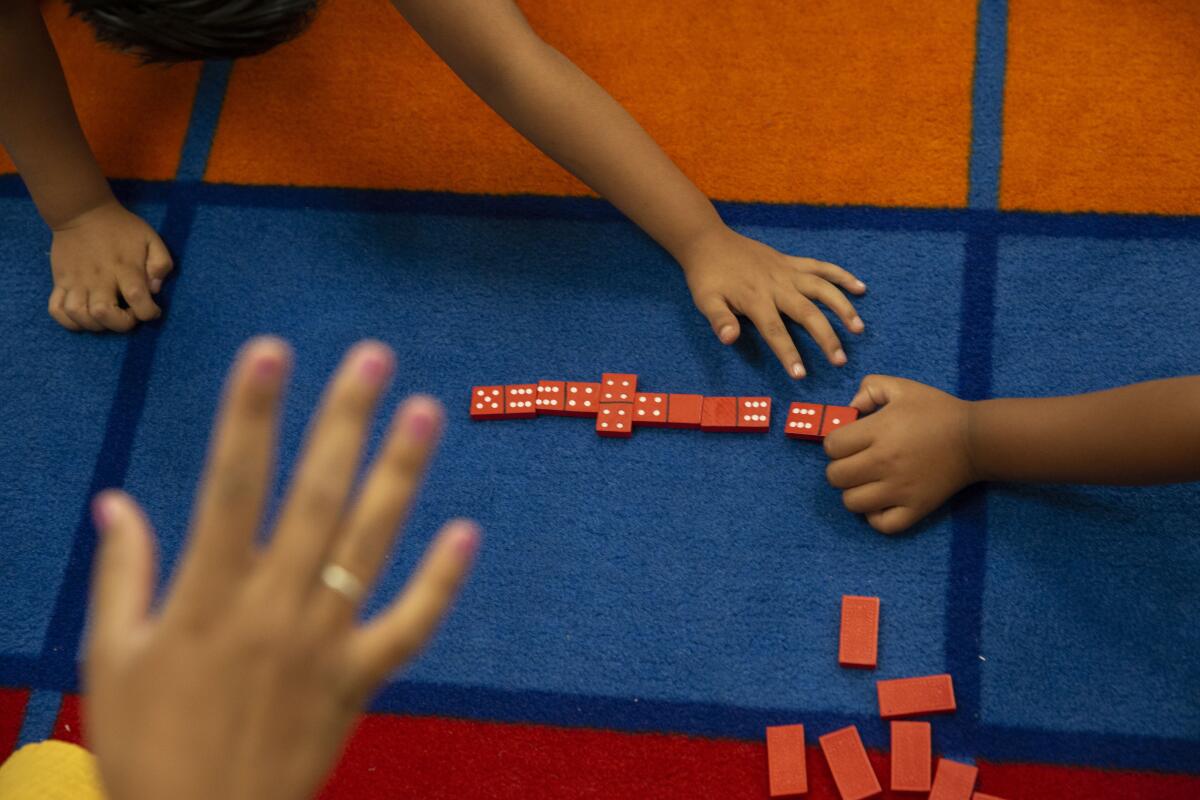Letters to the Editor: Teach math as puzzles for kids to solve. That’s more fun than memorization

- Share via
To the editor: Math classes should be eliminated and replaced by another recess period. In other words, if mathematics or arithmetic was taught as puzzles to be explored and as a fun activity instead of a series of tools or techniques to be memorized and not fully understood, there would be far less anxiety over it. (“Math anxiety is real — and we’re passing it on to our kids,” Opinion, Feb. 2)
In his comparison of math skills in the United States to the more successful Japan and Finland, Michael Brooks writes that “much of the disparity is likely due to the higher pay, more extensive training and better resources given to teachers in those two countries.” But his premise is that “math is hard and unnatural.”
Actually, mathematics can be very interesting if taught in preschool and elementary school very differently than it is now. My high school mathematics teacher would often say “play with it” after introducing some new concept.
Katherine J. Harine, Kingman, Ariz.
..
To the editor: Brooks’ assessments are interesting and mostly accurate, right up to his final paragraph. There, he writes:
“But let’s stop pretending that some of these math courses teach important life skills that must be learned before an education can be considered complete. If we can do that, we might begin to fix the problems that our dysfunctional relationship with math has created.”
Seriously? Look around at everything in the room you are in. Math and data are part of the design of literally everything you see.
All the data in the world are useless if the population chooses to be ignorant of the means and methods of evaluating and understanding them. The fact that so many choose not to participate in their own enlightenment, and actually revel in that ignorance, is discouraging in the short run and suicidal to society in the long term.
Yes, early math concepts can be hard to teach. But without imparting a basic understanding of math principles, people cannot fully comprehend the causes and effects of a variety of lifetime issues and actions that will define their future.
Mitch Hart, Benson, Ariz.
..
To the editor: I thank Brooks for indirectly supporting my “theory of everything” — ignorance is the enemy.
Brooks observes that “more than 30% of U.S. adults are defined as having ‘low numeracy.’ That means they can’t make calculations with whole numbers and percentages, estimate numbers or quantity or interpret simple statistics in text or tables.”
How ironic, therefore, that the predominantly white conservative parents shouting their objections to classroom discussions about race or gender identity (or anything that might make their child feel “uncomfortable”) in favor of their kids focusing on the “basics” (you know, math, science, reading) are, I’m guessing, among the very same adults who would deny the basic math behind the 2020 election and the science behind our pandemic health measures.
For those who are increasingly choosing to homeschool their children for other than special needs or health-related reasons, is this going to solve the problem of “inter-generational ignorance” or exacerbate it?
Howard Bodner, Tarzana




